In preparation for the safe opening of schools during the COVID-19 pandemic the Ministry of Primary and Secondary Education (MoPSE) developed standard operating procedures for schools to limit the exposure of learners to COVID-19; and reduce the chances of COVID-19 transmission amongst learners, teachers, and school communities.
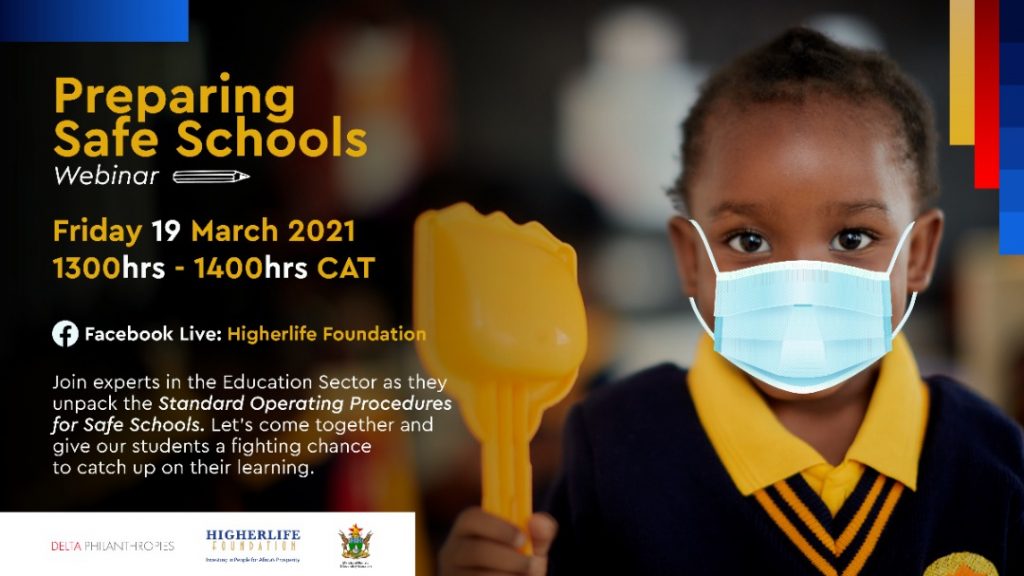
To educate teachers and guardians on these SOPs, Higherlife Foundation hosted the Preparing Safe Schools webinar on the 19th of March 2021 featuring panellists from MoPSE, the Campaign for Female Education (CAMFED) and Higherlife Foundation to unpack the measures and other issues impacting the education sector due to COVID-19.
Ministry of Primary and Secondary Education Catch Up Strategy
Setting the scene for the discussion, MoPSE Chief Director for Curriculum Development and Technical Services (MoPSE) Mr John Dewah indicated that a survey was carried out to assess the educational situation and a decision was made to develop a catch-up strategy to accelerate learning. Part of that strategy includes the following:
- Clinical remedial support for struggling learners and enhanced delivery of special needs education for learners with disabilities.
- Guidance and counselling services to address school dropouts, child marriages, drug abuse, and child labor amongst other social issues exacerbated by the pandemic.
- Learner assessment strategies to effectively assess learners in 2021.
- Standard Operating Procedures to ensure that there are safe operating measures at all schools across the country.
Taking a look at the SOPs
Following Mr Dewah, MoPSE Chief Director for Information, Mr. Taungana Ndoro delved into some of the key SOPs schools across the country need to adhere to which include:
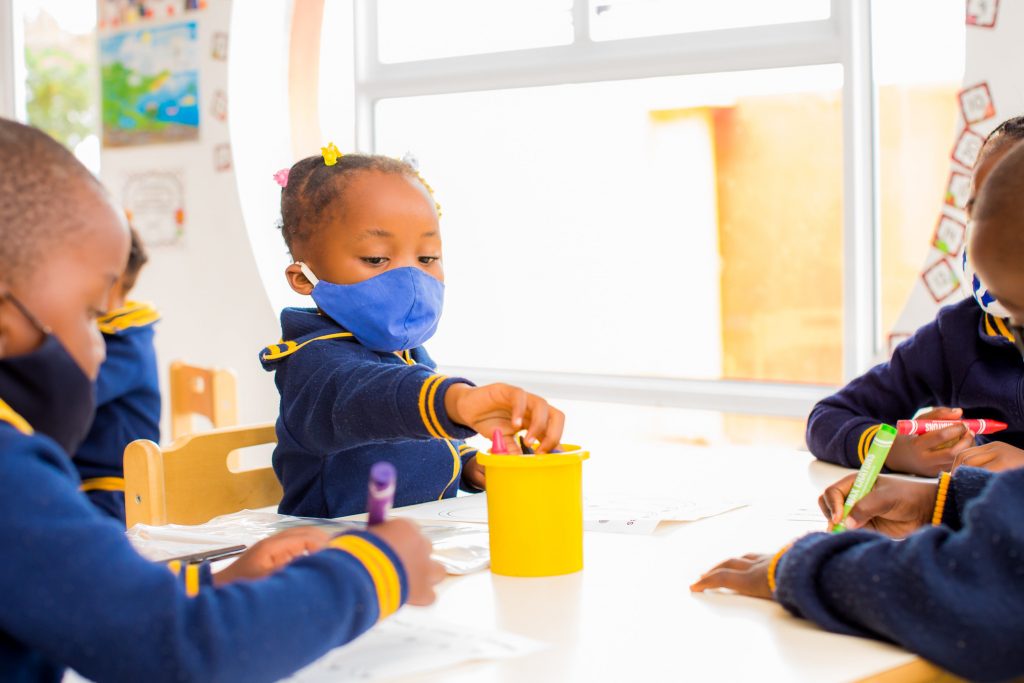
- Mandatory wearing of masks for all learners, teachers, and visitors to schools.
- Temperature testing at the school gate and holding bays for those with an abnormal temperature.
- Mandatory hand sanitizers and hand washing stations at the school gate.
- Limited classroom sizes of no more than 35 students max, with only one person per desk in a socially distanced set up.
- Staggered meals and visits to ablution facilities to prevent overcrowding.
- Spaced out boarding spaces with a minimum of 1.5m between bedding and no bunk beds in dormitories.
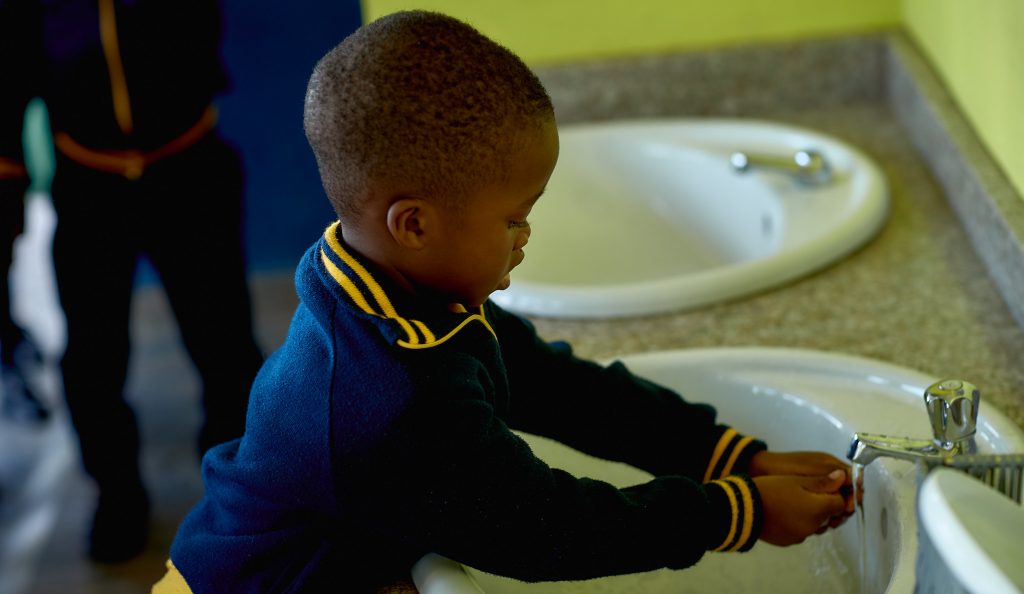
Mr Ndoro noted that some schools may face challenges in adhering to all the SOPs particularly those in remote areas and are under resourced schools. He urged school leadership to engage the local community, the village head, chiefs, alumni and members of parliament to mobilize resources through donations or community contributions.
He stressed that the COVID-19 crisis affects everyone and as such it is imperative for all to be involved to ensure our communities are safe.
Panel Discussion Insights
The panel discussion went on to explore other areas of concern with the reopening of schools namely, the impact of COVID-19 on girls’ education and how to accelerate learning.
The National Director of the Campaign for Female Education, Mrs. Faith Nkala highlighted that globally, lockdowns and school closures implemented during the COVID-19 pandemic have caused 743 million girls to miss out on their education. In addition, 10 million more secondary school-aged girls are expected to be out of school at any given point before the pandemic goes away.
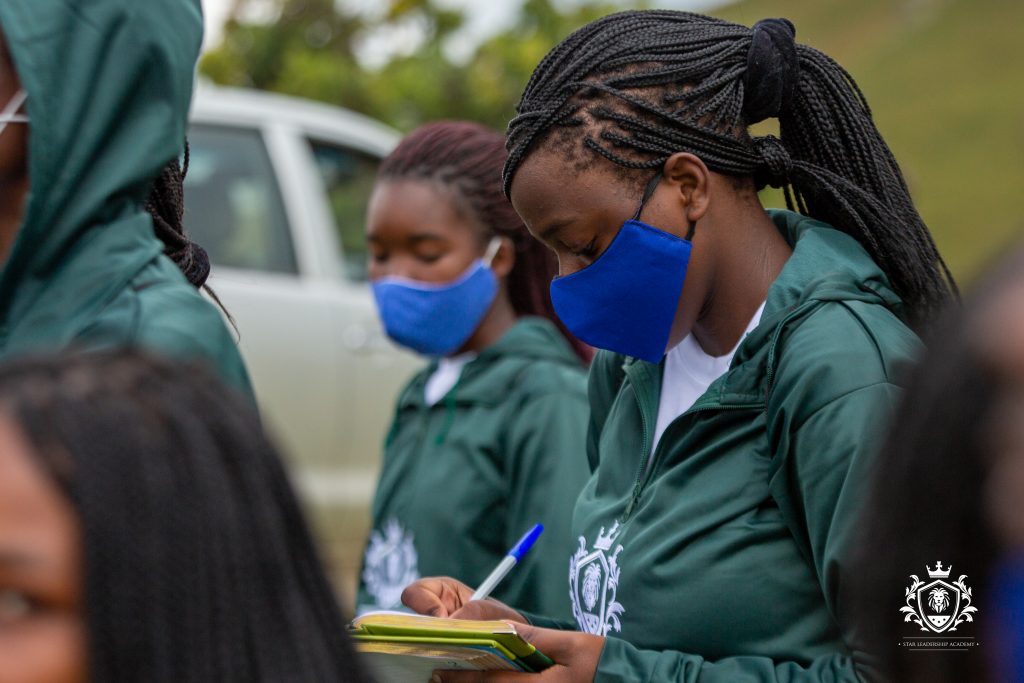
Mrs Nkala stressed the need to directly address gender discrimination and promote gender equality to ensure that an equal playing field is created for both girls and boys. She emphasized the need for collaboration from all around to make sure that the re-opening schools provides opportunities for every child to come back to school and the provision of safety nets for all children in school.
Speaking on the need improve learning outcomes for students, the Chief Operating Officer for Programs at Higherlife Foundation, Mrs. Chiedza Juru emphasized that protecting and prioritizing foundational learning is key to reducing the potential damage that widespread closure of schools will have on children. The skills learned during foundational learning are critical in developing children’s competencies, subsequent learning, and lifelong opportunities and are the most difficult to recover.
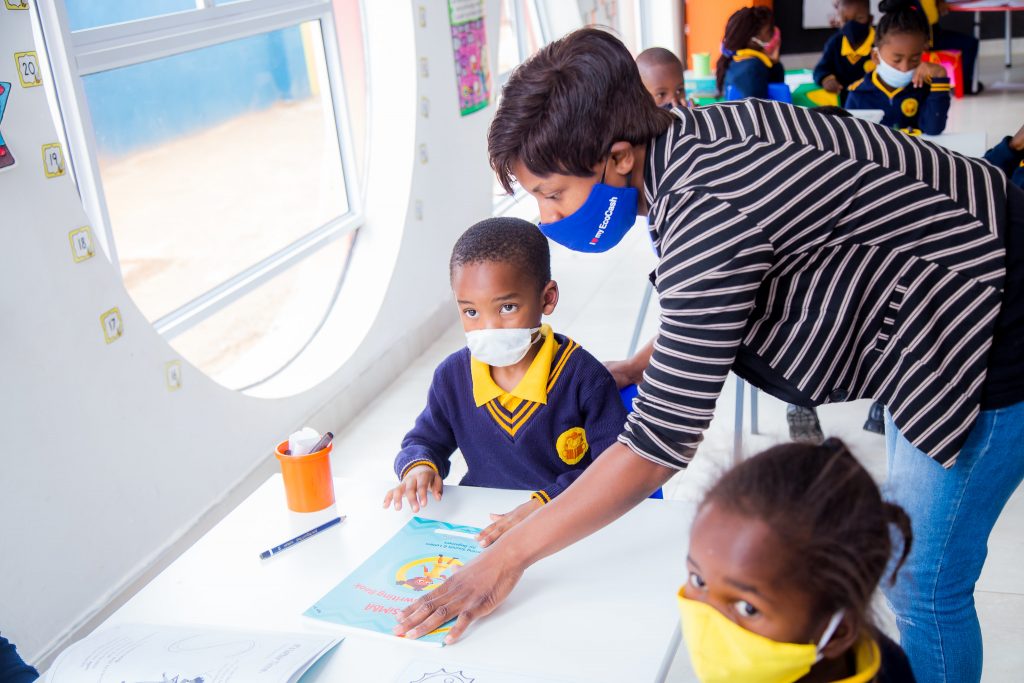
Higherlife Foundation in partnership with Simba Education implemented a foundational learning lockdown program that entailed training educators and providing printed learning materials to students. Phase 1 of the project saw 1,235 foundational learners in Zimbabwe being registered for the lockdown edition programme and receiving lessons from zoom.
Conclusion
The panellists concluded by emphasising that collaboration in Education is key in seeing the sector serve its constituency. Now more than ever there is need for concerted effort by partners in the education space in pursuit of providing quality education. Local community must also take an active role in supporting schools particularly around resource mobilization.
A total of 506 participants attended the online webinar including MoPSE Permanent Secretary Mrs T Thabela who expressed gratitude for the support Higherlife Foundation has given in combating the spread of COVID-19 in all the 10 provinces and in the initiatives that have been put in place to promote quality of education in Zimbabwe.
